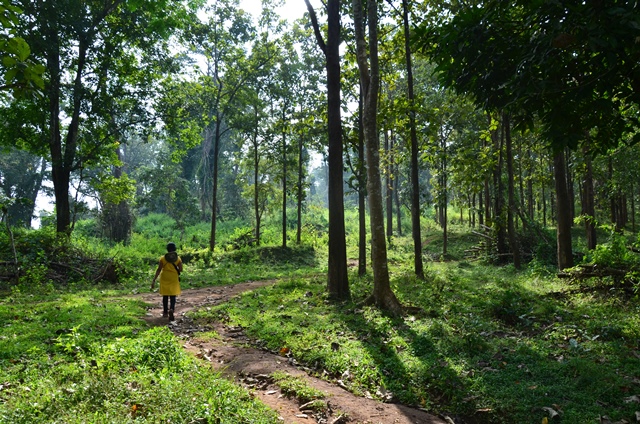(This post was originally published at The True Pretender)
We met Manoj at the Pugmarks Jungle Lodge in Wayanad during our stay there.
As the service staff, he served us food, cleaned the rooms, carried our luggage, and was available on call all the time. His broken Malayalam made us a little curious. But he understood whatever we said in Malayalam.
Manoj represents the new face of migration. For a state whose people have been migrating to the Gulf since early 70s, this is like coming a full circle of sorts. Increased money flow to the state resulting in a consumer culture and high literacy resulting in lack of local labour force have made Kerala a lucrative labour market for people from other parts of India. Before moving to Wayanad a couple of months ago, Manoj worked as a construction labourer in Kochi for over three years.
Migrants from West Bengal, Odisha, Assam, and Uttar Pradesh have become the backbone of Kerala’s economy. Kerala with a population of approximately 33 million has a migrant labour force of 2.5 million and about 2.4 lakh people arrive every year.
High wages is one of the reasons that is attracting migrants. While unskilled workers makes around Rs 100–150 a day outside Kerala, they make around Rs 300–400 a day in the state.
Some reports say that while migrants from Kerala in the Gulf and other parts of the world send close to Rs 60,000 crores annually to Kerala, the migrants in Kerala send close to Rs 18,000 crores annually to their home states in India.
Internal migration is considered to have far more potential to contribute to economic prosperity, social cohesion, and urban diversity, according to UNICEF. The challenges highlighted, however, are lack of a clear policy framework. Kerala perhaps might have its own unique challenges because of its high population density and its unique ‘rurban’ settings, ageing local population, and the presence of large migrant labour force.
Whatever be the complexities of this emerging situation, for now, Manoj is happy that he is able to send money back home regularly and offer a better life for his family.








I am all for internal migration… three cheers for Manoj and his type.. may their tribe increase… 🙂
Also I agree with comment above that this also promotes national integration….
Yes, Prasad. Let’s hope the govt. does implement some policies so that these people are not exploited and get better living conditions.
Look at the brighter side. When there is a manpower shortage in Kerala for doing these petty jobs, these people come & help.
Second, it improves national integrity. People learn the language & customs of another state or place. 🙂
Yes, Nisha, we are happy that the jobs are getting done and these people are able to earn well. Shopkeepers now speak Hindi and even some buses have boards in Hindi. That is good, too. Hope a Maharashtra or rather Mumbai-like situation does not develop in the future where the sons of the soil (instigated by a political party) realise these migrants are doing a better job. 🙂